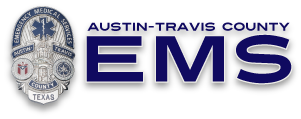Poisoning Safety Tips
These tips will describe various types of poisonings that may be encountered and some basic first steps to take in order to aid some who may be poisoned.
People can be poisoned through several methods, these include
Ingested poisons which may be liquid or solid can be found everywhere. They may be clearly labeled as poisons or be common household items such prescription pills, supplements, household cleaners, solvents, and even some common plants.
Inhaled poisons in dust, gas or vapors can be difficult to detect because they may be odorless and colorless. Carbon Monoxide is a very deadly colorless and odorless gas. Industrial areas and agricultural areas present high potential for inhaling poisons. The mixing of chemicals can be very dangerous, creating deadly gases as well.
Contact poisons can be found in various examples of outdoor vegetation and in various chemicals. Some of these chemicals, especially in factories, may be more clearly marked than others. Poisons found outside in nature are not as easy to detect and can make treatment difficult. It is often difficult to tell which leaves, grasses or trees can be harmful to humans.
Venomous poisons occur as a result of a bite or sting.
What to do if you suspect that a person has been poisoned:
Ingested Poisons
-
Do not let the person ingest any more of the suspected poison/toxin.
-
Identify the ingested poison/toxin if possible.
-
Have bottles or containers readily available for first responders on arrival.
-
Do not induce vomiting unless instructed to do so by Poison Control.
-
Keep person in an upright position or on their side in case the person vomits.
Inhaled Poisons
-
Safely remove the person from the dangerous vapors, if possible. Do not expose yourself and become another patient.
-
Move the person to a well-ventilated room or outdoors.
-
Try to identify what the person was exposed to and inform the 9-1-1 call-takers so they can alert the first responders of the potential hazard.
-
Report to first responders’ changes in the patient’s condition. For instance if the person is drooling or having trouble speaking.
-
Keep the person in an upright position or on their side in case they vomit.
Contact Poisons
-
If possible, safely remove any poison/toxin still in contact with the person.
-
Carefully remove contaminated clothing from person to minimize any continued exposure.
-
Do not rinse/wash the affected areas with water unless instructed to do so by Poison Control or responders.
-
Cover person with a clean sheet, blanket or towel.
-
Keep the person in an upright position or on their side in case the person vomits.
Venomous Poisons
-
Do not apply tourniquets to snakebites.
-
Do not attempt to “suck” the venom out of snakebite.
-
If possible, take a picture or good description of the snake, spider, scorpion or bug that has envenomed the person.
-
Do not pinch stingers that remain in the skin, they frequently have more venom inside them. Try to remove stingers using a credit card or other straight edge in a scraping motion across the stinger to dislodge it.
-
Keep injured area at or below the level of heart.
-
Apply ice or cold packs to the area to help reduce swelling.
-
Keep a safe distance from snakes or other dangerous animals, insects and swarms. Do not attempt to capture any animals or insects, but take a picture for later identification if the opportunity presents itself.
See your doctor and/or call the poison help line for additional information
(1-800-222-1222) or if you are unsure on how to deal with a situation that you believe is minor in nature.
-
Extra dose of prescription medication may have been taken accidently.
-
An insect bite/sting/envenomation with localized swelling, no other signs and symptoms of respiratory distress or altered mentation
Call 911 immediately if:
-
Obvious change in the patient’s condition and wellbeing.
-
Respiratory arrest or distress is present.
-
A full body exposure, rash or redness is present.
-
Animal control or law enforcement is needed to assist.

